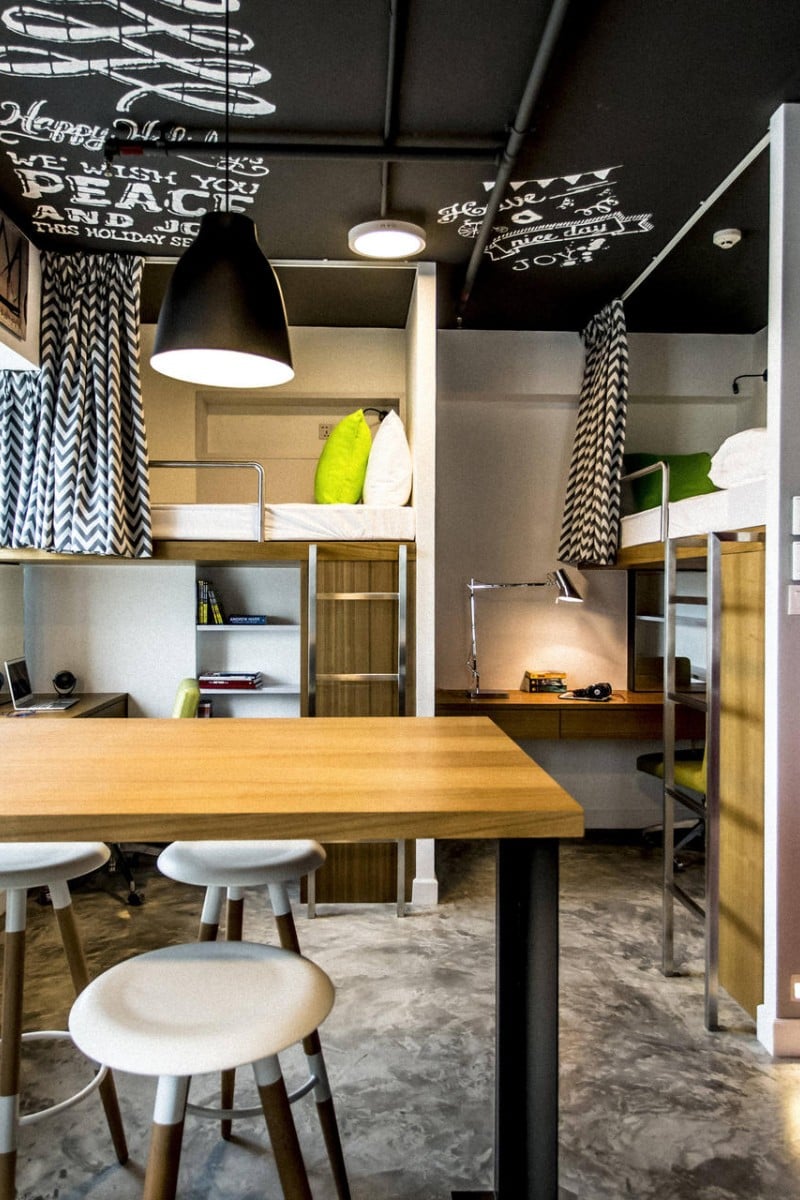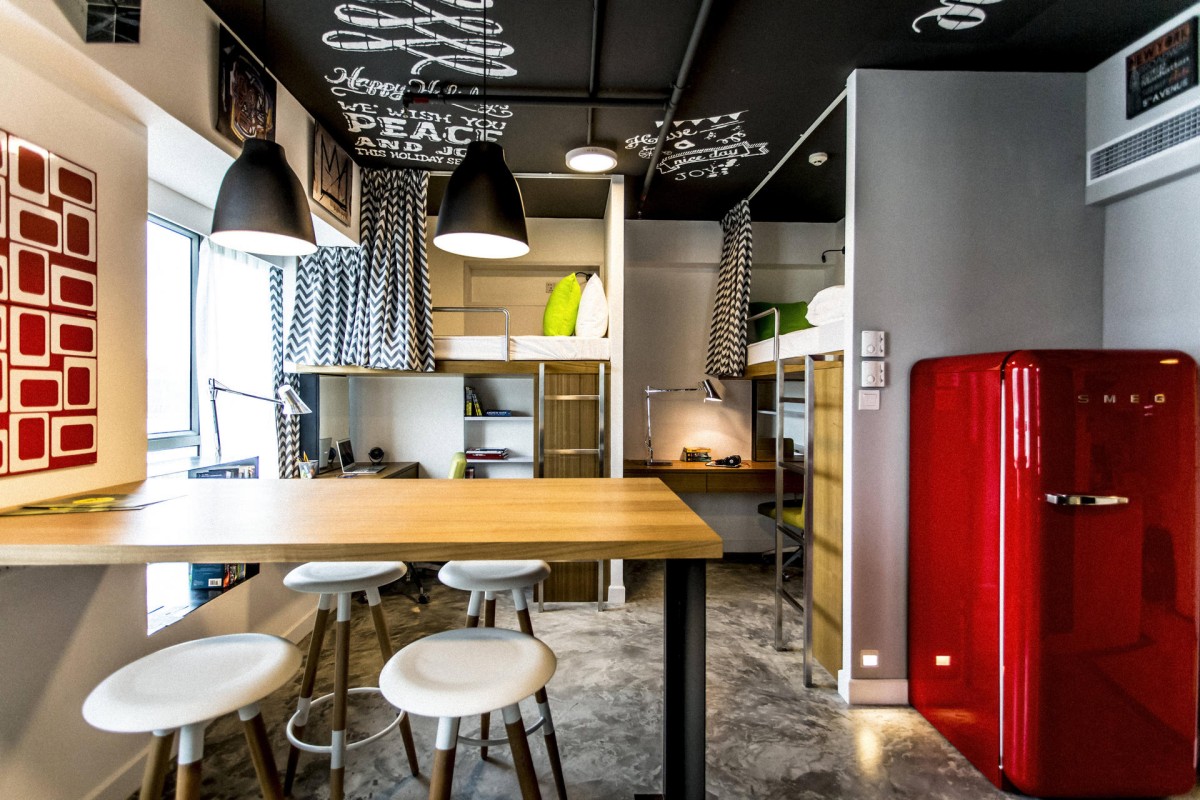
Forget the dorm: tips for having a great university experience in off-campus housing
Finding the right place to stay can make or break your university experience
 Campus HK, in Tsuen Wan, is designed specifically for students.
Campus HK, in Tsuen Wan, is designed specifically for students.Heading off to university can be an exciting but daunting task. The doors of freedom are now wide open, but there are a lot of things that need to be considered to survive in the concrete jungle of Hong Kong – or overseas – and finding accommodation is the number one priority. Everybody dreams of life in the dorm, but with the high demand for on-campus housing, many fresh high school graduates will expand their search to include off-campus housing. Here are some tips to set you off to find the accommodation you have always wanted.
Off-campus housing in Hong Kong
In Hong Kong, rent is not always affordable. Besides limited places to live on-campus, demand for off-campus housing remains high for both local and international students. It will take some research will make sure you get a good deal for your off-campus dormitories.
Easy booking
Many universities actually offer suggestions for off-campus housing on their websites. From there, you can start browsing through different options, from privately-rented flats to hostels.
Some universities help to pool students together to share flats. Keep in mind that before you sign any agreements, carefully read through them to make sure you fully understand – this isn’t like iTunes terms and conditions where you just click “OK”. Also make sure that the lease is fully legal.
A new option is Campus HK, a shared accommodation in Tsuen Wan designed specifically for students. Here, students live four to a room, and they have housekeeping twice a week, laundry, built-in kitchens, wi-fi, swimming pools, and TV. “Some landlords require students to pay the bills three months in advance,” says Benjamin Bourhis, Campus HK’s “campus guru”. “But for us, it is paid monthly, and they can stay as long as they want. Everything is sorted all at once.”
Aside from just providing a place to stay, students can meet classmates from all over the world and have an enriching campus life. “We have a big multicultural community, so I have planned many fun events for them to bond,” Bourhis said.
In addition, the common lounge facility gives students the chance to socialise; an interaction vital for an enjoyable stay. “We really want to build this community – make it come alive,” Bourhis explains. “I want students to get out of their rooms, put themselves out there as much as possible and have fun! Being open and friendly towards each others’ differences is the key for this, to try and find common hobbies or shared interests.”
But it’s not just a free-for-all: because shared rooms mean less privacy, Bourhis stresses the importance of rules. “For example, not accepting friends after 11pm. These are all rules that will make dorm life together a lot easier.”
Overall, the general aim is for off-campus life to be as memorable, enriching and enjoyable as possible, with the opportunity to meet many new friends.
Off-Campus housing overseas
Veronica Tam chose off-campus housing when she studied at university in Nottingham because it gave her more freedom and variety in the facilities available to her. Now working at Overseas Student Living, Tam explains that there are three types of off-campus housing to consider: homestay, private housing and private accommodation.
“The biggest challenge for homestays is normally the culture difference,” she says. “We are under the same roof, but the lifestyle, living habits, the food … everything is different so that takes time to adjust to.” Her tip? “Be open to try new things. Talk to your host family, share your culture and learn about theirs. You’ll gain much bigger exposure that way.”
Location Location Location
Many students struggle to find accommodation overseas because they are unfamiliar with the area and don’t know where to look, says Tam. “The key is to spend a lot of time researching beforehand.”
It’s important to make sure the housing is reasonably close to your university, but students should always contact the landlords to make sure the facilities suit their needs. It also helps to book as early as possible.
There’s one more thing: always personally check out the rooms and facilities, as things might not be as perfect as they look online. This is especially true for private housing, which carries a few other tricky spots.
“For private housing, utility bills aren’t included in the overall price, so you must be careful with what you are leaving on and off,” Tam warns. “Many people have no idea how a mistake like that would build up over the months.”
For some, it is worth considering booking private accommodation from larger companies with more bargaining power, so the outcome is more likely to be the way you expected. For private accommodation, the bills are all inclusive.
Once you’ve decided where you’re staying, it’s time to make it your home. “First thing’s first,” says Tam. “You must have bedding!” She stresses the importance of carrying sleeping essentials – especially if you are arriving at times when stores might not be open. This means your first few nights will be comfortable.
Secondly, building up a community of support is vital. “Put yourself out there; go and say ‘hi’ to your neighbours, it helps so much when you feel homesick,” said Tam. Students from other universities also share the same housing, so it is always good to keep an open mind and explore the area as much as possible.
Off-campus housing is not a hotel stay, as Tam describes. “We all have chores that we do on rotation, whether it’s grocery shopping, cleaning the toilets or the communal area where we socialise; because we do it together with friends, it speeds it up, and makes everything a lot more enjoyable!”
Facilities
The facilities available for students vary according to the country they are studying in, so students should check the facilities available for them and see what they will be missing. “Some accommodations are not furnished, while others come with laundry and the whole package,” Tam says. She recommends you to aim for accommodations that provide laundry, and are close to convenience stores. A place with communal rooms, TVs and places for you to chat and meet new people “really gives off a nice community vibe.”
Safety is an important aspect to be aware of. This should be incorporated into the research for the area around your house. CCTV is also a good idea!
Furthermore, always check if only students are allowed to enter into the buildings. “It is a relief for parents to know their children will be interacting with students their age,” Tam says, “So that there is nothing dodgy going on!”